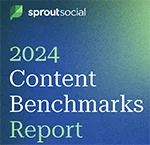 |
| Jon Gingerich |
For years, we’ve seen overwhelming evidence regarding the ways in which social media platforms negatively affect our physical, mental and emotional health. Now, finally, many of us are beginning to get the message.
Ironically, Americans’ growing antipathy to social media appears to be one of the few concepts on which we agree. Many of us are at a peculiar crossroads where we find ourselves increasingly reliant on Big Tech even as we grow increasingly distrustful of what these companies do with our personal data. A December Washington Post-Schar School poll found that nearly three-quarters (72 percent) of Internet users no longer trust Facebook to responsibly handle their Internet activity, and nearly two-thirds (64 percent) believe the government should do more to rein in Big Tech. More than half (56 percent) think Facebook has had a negative impact on society. About 70 percent believe their phones often listen to them without their consent.
An October Morning Consult poll found that Americans’ opinion of the tech industry has suffered the steepest drop in trust, falling from the most trustworthy sector in the U.S. as recently as 2017 to sixth place this year (out of nine industries ranked). A third (32 percent) now consider the tech sector the least-trustworthy industry in society today.
| This article is featured in O'Dwyer's Jan. '22 Crisis Communications & PR Buyer's Guide Magazine (view PDF version) |
In some ways, it seems our love affair with social media is coming to an end. Social media usage in the U.S. has essentially plateaued in the last five years and was only slightly higher in 2021 than it was in 2016. Facebook’s popularity continues to dwindle among both young and middle-aged audiences, and most social media usage growth in 2021 went to TikTok, which was fueled primarily by young people. It seems that if you’re considering a New Year’s resolution, pulling the plug on social media—or at least limiting the time you spend on these sites—wouldn’t be a bad idea. And why wouldn’t you? Every year it just seems to get worse.
Maybe it’s the fact that study after study has suggested that social media platforms are not only addictive, but they contribute to depression, anxiety and insomnia. Or maybe it’s the recent revelation that Facebook executives allegedly knew but failed to do anything about the constant flow of fake news, misinformation and conspiracy theories that runs on their platform, which has resulted in radicalizing people—and that radicalization, as we found out last January, doesn’t stay online—through algorithms that play to our cognitive biases. Or worse, that Facebook deliberately prioritizes inflammatory and divisive content because it knows that content will result in the highest levels of user engagement.
Or maybe you’ve found yourself in a position where you’ve had an opinion on a current event you’d like to share, but declined to do so because you don’t feel like spending the entire day arguing with strangers? Or maybe you’ve grown leery of the expectation that every moment must be captured and uploaded into the digital record, as opposed to the practice of experiencing life in the moment. Or maybe you’ve realized that collecting virtual followers will never suffice for real-world connections, or that comparing other people’s lives or appearances or successes as a yardstick for your own is just downright depressing.
It’s time for us to come to grips. The great social media experiment has failed. It has made us hostile, self-loathing and deeply polarized. It’s eroding society. Granted, social media can be a useful tool for networking, promoting your business and for staying connected with family and friends, and while social media isn’t going away anytime soon (Facebook alone accounts for nearly a quarter of U.S. digital advertisers), recent strides to improve these digital havens have fallen short (A year after the Jan. 6 insurrection, 81 percent of 2020 election misinformation publishers in the U.S. continue to spread fake election claims, according to news rating site NewsGuard). We created a monster.
My guess is that tech companies, in an effort to guarantee their survival, are going to begin investing their energy in new methods of consumer interaction. It’s pretty obvious that short-form video content ala TikTok (as well as the copycat Reels feature on both Facebook and Instagram) is where the action will be in 2022. Meta, the newly-minted parent company of Facebook, is moving into the virtual reality realm. The leaders of social media sites seem hell-bent on getting out of the social media business. And who can blame them? Expect the social media landscape to look very different in the coming year.
It’s also almost certain that we’re entering a new era of social media regulations. It’s probably not a surprise that the prospect of strengthening consumer data privacy protections and forcing these platforms to be more transparent are among the few issues that currently have bipartisan support on Capitol Hill. Of course, there are very real First Amendment issues to consider, but one proposal that’s gaining traction is the idea of amending Section 230 of the Communications Decency Act, which currently provides social media platforms liability protection from the content that runs over their sites. Whatever happens, the architecture of social media will undoubtedly experience a change in 2022. Something’s gotta give.


 What if companies could harness the fury of online outrage into a force for good? This is precisely where companies can start turning the trolls into brand champions.
What if companies could harness the fury of online outrage into a force for good? This is precisely where companies can start turning the trolls into brand champions. Audiences interacted with brand content far more often on Facebook and Instagram in 2023 than they did via X (formerly Twitter), according to a report that tracked engagement trends across different social networks.
Audiences interacted with brand content far more often on Facebook and Instagram in 2023 than they did via X (formerly Twitter), according to a report that tracked engagement trends across different social networks. Can public relations help counteract the dissension fostered by the power of digital platforms to spread hate, fear and confusion?
Can public relations help counteract the dissension fostered by the power of digital platforms to spread hate, fear and confusion? The number of Americans who get their news from TikTok has quadrupled in the last three years, according to a recent Pew Research Center report.
The number of Americans who get their news from TikTok has quadrupled in the last three years, according to a recent Pew Research Center report.


 Have a comment? Send it to
Have a comment? Send it to 
Jan. 4, 2022, by Joe Honick
There can be little disagreement with the data and opinions expressed here. The problem arises with definition of who "us", "our" and "we" are who have all these urgent opinions. The reason for my concern is that there are a few billions who almost hourly are involved with all these social networks who could not care less what all we smart folks think. Is this stuff addictive? You bet! When all these platforms were new, maybe there could have been some means to adjust their use and addiction to meet the concerns of us "wiser" folks. And, if Jon thinks these operations are "eroding" society, wait till the upcoming political campaigns.